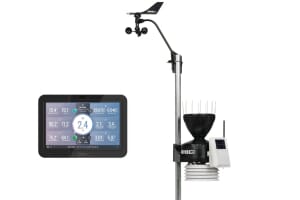Be Prepared for Flooding

Last year in August we gave some advice as to how to react to flash floods. It seems a long time ago now, with a very different situation then to the one we now find ourselves in. Last summer we had a very dry July, with hose pipe bans in force in various parts of the country, especially in the south east. The worry was that any heavy
August rain from thunderstorms would not be able to drain into the ground, as it was too dry to rapidly absorb excess water and so would run off, causing the potential for flash flooding. Now, whilst the ground is very moist the problem is more or less the opposite. It is so saturated in places that it cannot accommodate any more water and so will run off again, causing the potential for flash floods but also due to the high level of the water table at present, rivers and their tributaries are running at very high levels and are not allowing further substantial volumes of water to be carried away downstream, as they normally would
Therefore, given these risks, the advice we gave last year regarding being prepared for such events, is worth reiterating.
If you think you are likely to be affected by either flash flooding or local stream or river levels rising then you should take precautions before the event if possible:
- You can purchase flood guards and flood gates in advance which you can lay around your property. If your home is regularly at risk of flash flooding these really can offer worthwhile protection.
- Alternatively you could make up sand bags in advance, using cloth or plastic sacking
If a flash flood or river rise occurs;
- Move elderly people and animals to safety first then alert others.
- Ensure sandbags are in place and plug up sinks and baths putting a sandbag in the toilet bowl as well.
- Turn off the gas and electricity supply, unplugging electrical items and moving them upstairs or into loft space if time permits.
- Don't try to walk or drive through the floodwater unless told to do so by the police pr other agencies. It only takes six inches of fast flowing water to knock you over. As little as two feet of water can cause your car -possibly with you in it- to float away.
- Floodwater may be contaminated with debris, silt and sewage. Do not walk or wade through it whilst exposing your skin, unless you really have to and do not allow children to play in it.
As the Environment Agency point out, flooding often happens very quickly and when you least expect it, such as in the early morning, when it’s dark. They suggest that preparing an emergency flood plan can help you through a serious situation; by creating the plan with all the members of your family, explaining what to do and even practising the plan, it will help prepare everybody for the time when you may need it.
For further information see the Environment Agencies website at: http://www.environment-agency.gov.uk/homeandleisure/floods/
For the latest flood warnings see http://www.environment-agency.gov.uk/subjects/flood/floodwarning/?version=1〈=_e





